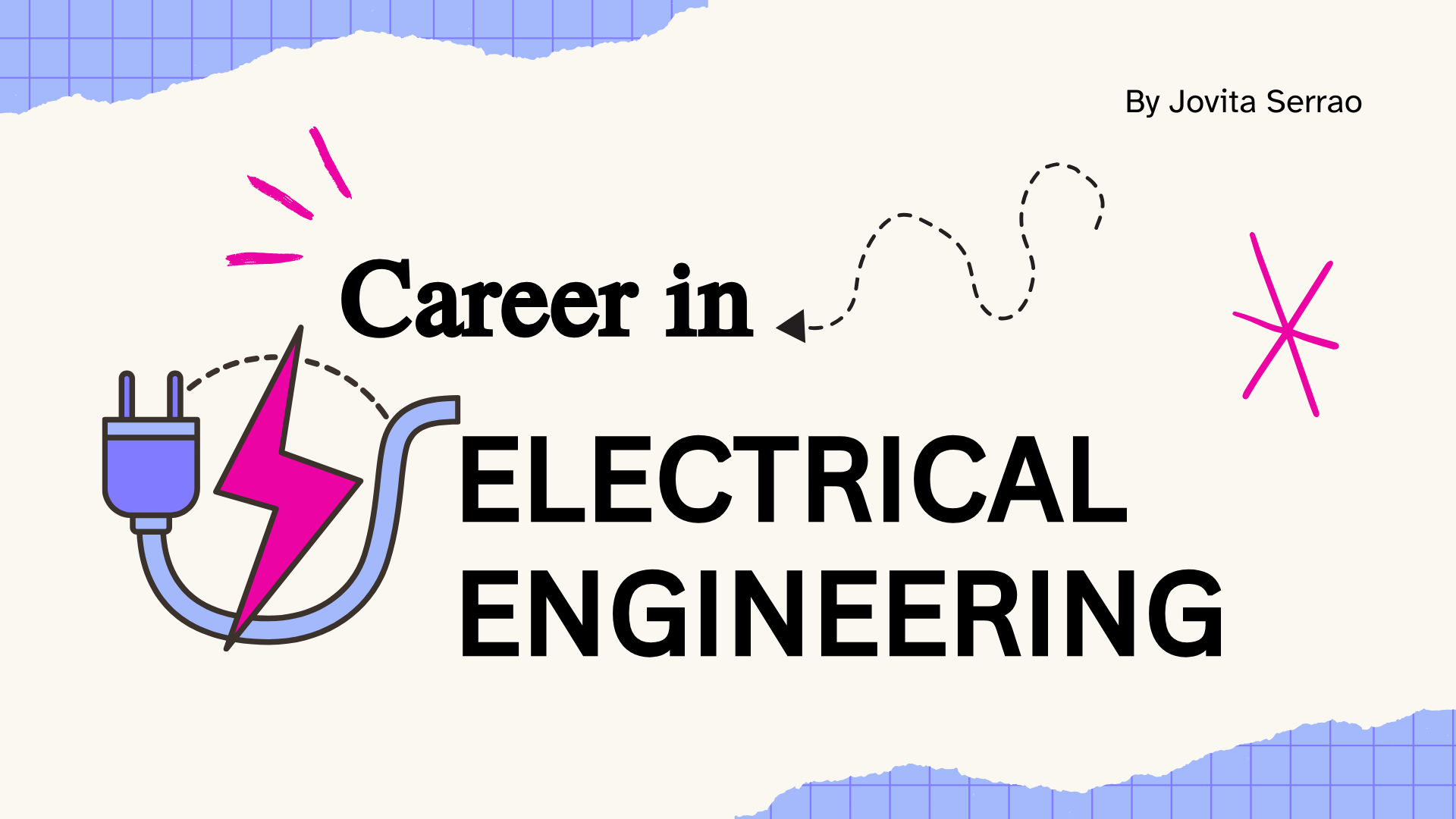
Illuminating the Path: A Comprehensive Guide to a Career in Electrical Engineering
Have you ever wondered how electrical systems power our homes, cities, and industries? Are you intrigued by the technology behind power generation, distribution, and electronic devices? Why should you consider a career in Electrical Engineering? What specializations are available, and what does a typical day look like for an electrical engineer? This blog offers a detailed guide for students in India interested in pursuing a career in Electrical Engineering.
Why Choose a Career in Electrical Engineering?
A career in Electrical Engineering offers the opportunity to work on vital systems that power our world. Electrical engineers design, develop, and maintain electrical systems and equipment used in various applications, from household appliances to large-scale power plants. This field is ideal for those interested in technology and innovation, with a strong emphasis on problem-solving and practical application.
Specializations in the Career
Electrical Engineering encompasses several specializations, including:
- Power Systems Engineering
- Control Systems Engineering
- Electronics and Communication Engineering
- Instrumentation Engineering
- Renewable Energy Engineering
Day-to-Day Activities of an Electrical Engineer
The daily activities of an electrical engineer can vary based on their specialization and role but generally include:
- Designing and analyzing electrical circuits and systems
- Developing and testing electrical equipment and control systems
- Overseeing the installation and maintenance of electrical systems
- Troubleshooting and resolving electrical issues and failures
- Collaborating with other engineers and technicians on projects
- Ensuring compliance with safety standards and regulatory requirements
Eligibility Criteria
To pursue a career in Electrical Engineering, candidates in India typically need:
Pathways After SSC (10th Grade):
- Enroll in a Diploma in Electrical Engineering, which can be followed by lateral entry into the second year of a Bachelor’s degree program.
Pathways After HSC (12th Grade):
- Complete 12th grade with a focus on Physics, Chemistry, and Mathematics (PCM).
- Qualify for entrance exams such as JEE Main, state-level engineering entrance exams, or specific exams for electrical engineering programs.
Higher Education:
- A Bachelor’s degree in Electrical Engineering (B.E./B.Tech).
- Advanced positions may require a Master’s degree (M.E./M.Tech) or PhD.
Job Opportunities
Electrical engineers have diverse job opportunities in various sectors, including:
- Power generation and distribution companies
- Electrical equipment manufacturers
- Automation and control system companies
- Telecommunications firms
- Construction and infrastructure companies
- Research and development institutions
Salary
Salaries for electrical engineers in India can vary based on experience, location, and specialization. On average:
- Entry-level engineers can expect to earn between INR 3 to 7 lakhs per annum.
- Mid-level professionals may earn between INR 7 to 15 lakhs per annum.
- Senior-level engineers and managers can earn INR 15 lakhs and above per annum.
Key Skills Required
To excel in Electrical Engineering, one must possess:
- Strong analytical and problem-solving skills
- Proficiency in electrical design and simulation software
- Excellent understanding of electrical circuits and systems
- Knowledge of control systems, instrumentation, and power distribution
- Ability to work in teams and communicate effectively
- Attention to detail and ability to work under pressure
Industry Trend/Future Prospects
The future of Electrical Engineering is vibrant and evolving with trends such as:
- Growth in renewable energy technologies and smart grids
- Advances in automation and control systems
- Increased focus on energy efficiency and sustainability
- Development of next-generation electronics and power systems
- Expansion of electric vehicle infrastructure
Options of Institutes
Top Institutes in India:
- Indian Institute of Technology (IIT) Bombay
- Indian Institute of Technology (IIT) Delhi
- Indian Institute of Technology (IIT) Madras
- Indian Institute of Technology (IIT) Kharagpur
- Indian Institute of Technology (IIT) Roorkee
Top Institutes in Maharashtra:
- Veermata Jijabai Technological Institute (VJTI), Mumbai
- College of Engineering, Pune
- Dr. D.Y. Patil Institute of Technology, Pune
- MIT School of Engineering and Science, Pune
- K. J. Somaiya College of Engineering, Mumbai
Fees
The cost of an Electrical Engineering program in India can vary widely:
- Diploma programs: INR 20,000 to 50,000 per year
- Bachelor’s programs: INR 1 to 2 lakhs per year in government colleges; INR 2 to 5 lakhs per year in private colleges
- Master’s programs: INR 1 to 3 lakhs per year
Scholarships/Loans
Many institutions offer scholarships and loans, such as:
- National Scholarships (e.g., MHRD scholarships)
- State Government Scholarships
- Institution-specific scholarships
- Education loans from banks and financial institutions
In Summary
A career in Electrical Engineering offers the chance to work on essential systems that power our modern world. By developing the necessary skills and staying updated with industry trends, you can unlock numerous career opportunities and contribute to technological advancements in power and electronics. For personalized advice and guidance, feel free to reach out!
Author: Ms. Jovita Serrao
Position: Founder and Career Counselor, Career Pravaas
Contact Information: jovita.s@jetech.co.in
Stay tuned for more insights and guidance on various career paths. If you have any questions or need personalized advice, feel free to reach out!
Keywords: Electrical Engineering, career in Electrical Engineering, Electrical Engineering specializations, day-to-day activities of Electrical Engineers, Electrical Engineering eligibility criteria, job opportunities in Electrical Engineering, Electrical Engineering salary in India, career progression in Electrical Engineering, key skills for Electrical Engineering, industry trends in Electrical Engineering, top institutes for Electrical Engineering in India, top institutes for Electrical Engineering in Maharashtra, Electrical Engineering fees, Electrical Engineering scholarships and loans, experts in Electrical Engineering
